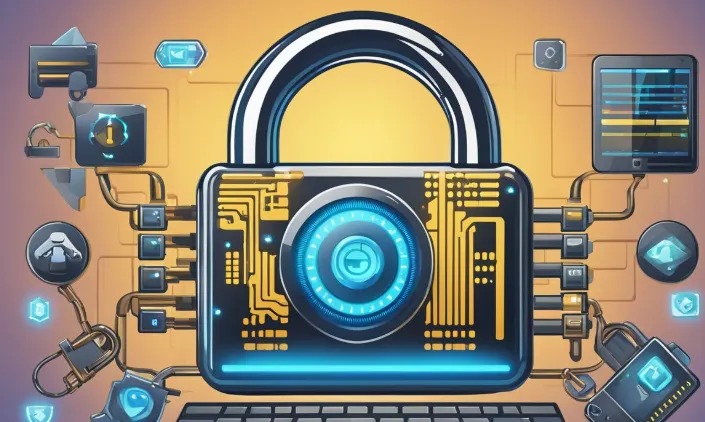Introduction: Gaming as a Cultural Code
In today’s hyperconnected world, online slot deposit 1000 via dana is more than digital entertainment—it’s the code of a new civilization. Through real-time collaboration, creative expression, and global competition, gaming has built its own rules, societies, economies, and values. It is shaping how we live, work, learn, and connect in ways no other medium has ever achieved.
Online games are not just pastimes—they’re the blueprint of our evolving digital culture.
A Universe in Every Game
Each online game is a universe of its own:
- World of Warcraft is a living society with economies, politics, and guilds.
- GTA Online is a bustling digital metropolis with businesses, heists, and nightlife.
- Minecraft is a blank canvas for architecture, science, and imagination.
- Fortnite is a cultural hub with concerts, story events, and global participation.
Players don’t just enter these games to play—they inhabit them.
Rules, Roles, and Rituals: How Games Form Cultures
Just like real-world societies, online gaming communities develop their own:
- Rules: From game mechanics to community guidelines
- Roles: Healers, leaders, strategists, traders
- Rituals: Daily log-ins, end-of-season battles, clan meetings
- Language: Slang, acronyms, emotes, and in-jokes unique to each game
In this way, games don’t just reflect culture—they create it.
Digital Citizenship: Learning Life Through Play
In online games, players learn real-life skills disguised as play:
- Conflict resolution through PvP diplomacy or guild politics
- Resource management in survival and strategy titles
- Ethics and decision-making in narrative-rich games
- Teamwork in cooperative missions and raids
Players become digital citizens, navigating complex virtual societies with rules, consequences, and collaboration.
Avatars as Alter Egos: The New Self-Expression
Your avatar isn’t just a character—it’s you, reimagined.
- Gamers use customization to express identity, mood, and beliefs.
- Outfits, emotes, and badges represent status, skill, or subculture.
- Names and bios become symbols of digital personality.
For many, gaming offers a platform to explore parts of themselves that feel invisible or constrained in the physical world.
Economies Without Borders: The Digital Marketplace
Virtual economies are now as complex and consequential as real ones:
- Players trade gold, skins, NFTs, and resources.
- Games have marketplaces, inflation, and supply chains.
- Entire careers are built on item trading, skin design, or digital land flipping.
Games like Diablo IV, EVE Online, and The Sandbox show how economics, labor, and value systems function in purely virtual environments.
The Rise of Virtual Professions
Thanks to online gaming, new digital professions have emerged:
- Pro gamers compete in tournaments with million-dollar prize pools.
- Streamers and influencers earn from ads, donations, and fan support.
- Game designers and modders create and monetize content within games.
- In-game service providers offer coaching, account leveling, and customization for a fee.
Gaming has become a career path, not just a pastime.
Shared Mythology and Storytelling
Online games are now vessels of shared mythology:
- Seasonal events, lore drops, and cinematic trailers create anticipation and fandom.
- Players co-author stories through choices and roleplay.
- Communities build wikis, fan fiction, and theories—just like ancient mythmakers did with legends.
Games like Destiny 2, Elden Ring, and The Witcher universe are modern epic sagas, lived in rather than watched.
Multiplayer Unity: Building Bridges Across Borders
Games connect people regardless of geography, religion, or language:
- Among Us taught teamwork and deception to global classrooms.
- League of Legends tournaments unite fans across continents.
- VRChat allows full-body, immersive interaction among strangers from anywhere.
In a world divided by politics and screens, online gaming provides a shared digital stage for cooperation and understanding.
From Gamification to Global Impact
Gamification is now used beyond gaming:
- Education: Quizzes, rewards, and missions in schools and online learning
- Health: Fitness apps that level up your real-world actions (Zombies, Run! or Ring Fit Adventure)
- Marketing: Brands using game mechanics for engagement (Nike Fortnite skins, anyone?)
Games influence how we’re motivated, how we learn, and how we spend. The mechanics of gaming have leaked into real life.
Challenges in the New Civilization
Like any society, the gaming world has issues:
- Toxicity and harassment in voice and text chats
- Unethical monetization in free-to-play models
- Exclusion and gatekeeping in competitive spaces
- Mental health concerns around gaming addiction
But just like cities clean their streets and nations evolve laws, online communities are actively working on better moderation, inclusivity, and safety.
Gaming and the Future of the Internet
Online slot qris is not just part of the internet—it’s defining it.
- Metaverse platforms are modeled after MMOs and sandbox games.
- Gamers are the first citizens of the immersive web.
- Virtual reality, AI storytelling, and decentralized worlds are built with gaming at the core.
If the internet was built on text, video, and commerce, the next phase will be built on play.
Conclusion: A Civilization in Control of the Console
We often ask if games imitate life—but the truth is, games are becoming life.
They teach us how to lead, how to cooperate, how to build, how to win, and how to lose. They’re changing our habits, values, jobs, and friendships.
In this new digital civilization, those who understand the code of play are already leading.
